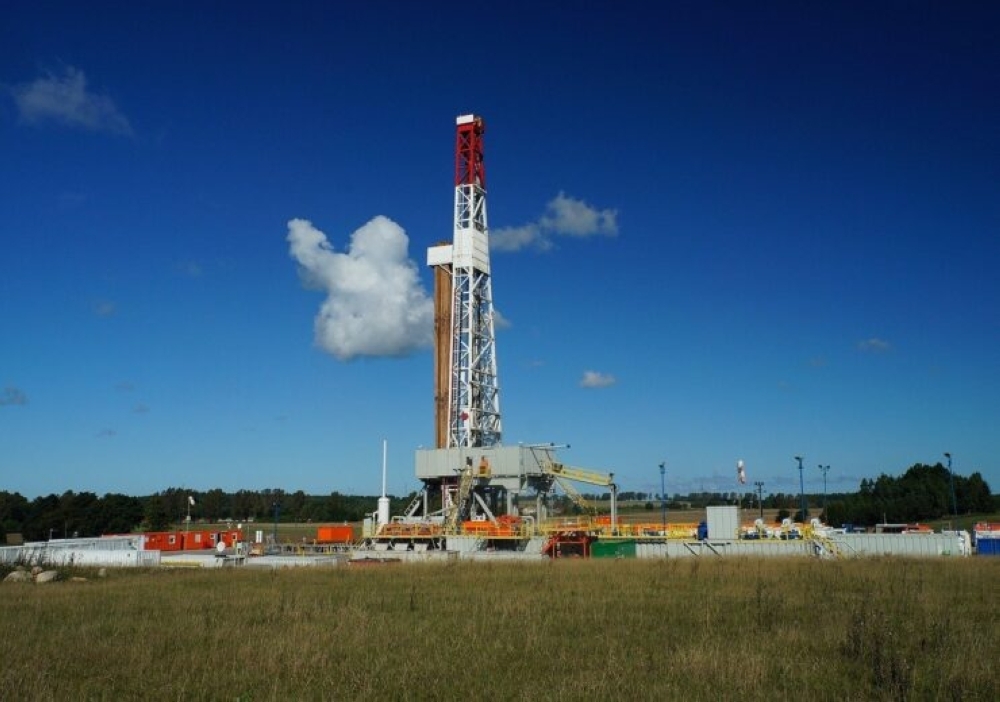Economic & Social Justice Trust asks for ministerial soil tests
Follows on Canadian driller claiming that drill mud is ‘organic’
The Economic & Social Justice Trust has cast doubt on ReconAfrica’s claim of using “organic” drilling mud while searching for oil in the Kavango Basin.The trust said that in an interview on OneAfrica TV on 6 May 2022, ReconAfrica spokesperson Mwanyengwa Shapwanale stated that the company uses an “organic” drilling mud, which she claimed has been tasted by “our people”.
The trust said that Shapwanale was echoeing earlier statements by company founder Craig Steinke who implied on the NBC segment ‘ReconAfrica says oil and gas exploration activities in Kavango Basin are above board’ which aired on NBC’s Hartklop FM on 30 March 2021, boasting about his drilling fluid.
“The problem for ReconAfrica is that organic drilling mud does not exist,” the trust said in a media statement.
“The International Journal of Environmental Research and Public Health says that ‘drilling fluid is generally a water-based mud containing mainly bentonite clay. Most drilling muds consist of aqueous slurry of 5% bentonite in amended with sodium hydroxide and a density-increased material such as barite, to help float out rock cuttings. Water based is not the same as organic, and even though water may form the base of the fluid, chemicals are added as they are throughout the drilling process. It is still hazardous to the environment and unsafe for groundwater’. For ReconAfrica to claim that these additives or drilling mud are ‘organic’ or safe to consume is misleading and false,” the trust said.
Furthermore, the trust said that ReconAfrica spokesperson’s statement implied that the mud used in drilling ReconAfrica’s wells would be safe for human consumption, “which is false. The fluid which comes from drilling is toxic and was dumped by ReconAfrica at both of their drill sites, into unlined pits with potential to contaminate groundwater.”
In addition, the trust said that in October 2020, ReconAfrica’s former spokesperson Claire Preece, said that “potentially toxic drill cuttings from the oil test wells will be managed in lined pits, cleaned, and disposed of offsite as per company and regulatory requirements.”
However, the trust alleges that ReconAfrica has failure to properly dispose of this waste, which is a violation of the company’s Environmental Management Plan. “The current spokesperson claims the document holds the company accountable, but in reality the company acts without significant oversight,” the trust said.
The Economic & Social Justice Trust said that despite the often repeated ReconAfrica talking points regarding the drilling of water wells, “ there will be no benefit to communities if the groundwater is contaminated by the careless disposal of drilling effluent. While the company claims that there is ‘no way’ their practices can harm the environment, their disregard for basic safety standards makes harm to the environment and groundwater all but certain.”
Land farming
The trust alleges that ReconAfrica did not ensure that “potentially toxic cuttings will be cleaned and disposed of offsite” as they said they would, instead this waste was dumped into unlined pits. .
“The Canadian company now grows crops on top of the waste pit at Kawe. This is a process the oil industry refers to as ‘land farming’. No third party verification of the safety of that soil was done before planting crops there. Many of the elements included in the drilling slurry which were included are harmful in high concentrations, but ReconAfrica also have never publicly listed the liquids which they disposed of in the unlined pits,” the trust said.
Furthermore, the trust said that there has been no evaluation of whether the type and degree of the contamination in the soil is suitable for land farming.
“The Journal of Environmental Research and Public Health published a study ‘Soil Contamination Assessments from Drilling Fluids and Produced Water Using Combined Field and Laboratory Investigations on Land Farming’ and they found elevated chemical levels present in the soil where drilling fluids had been previously stored including increased levels of chromium and nickel. The study also noticed that levels of calcium, sodium and chlorine tested over allowable limits for applications to soils.”
It is in light of this, that the Economic & Social Justice Trust has asked the Ministry of Agriculture to test the soil and to protect the precious water resources in the Kavango regions.



